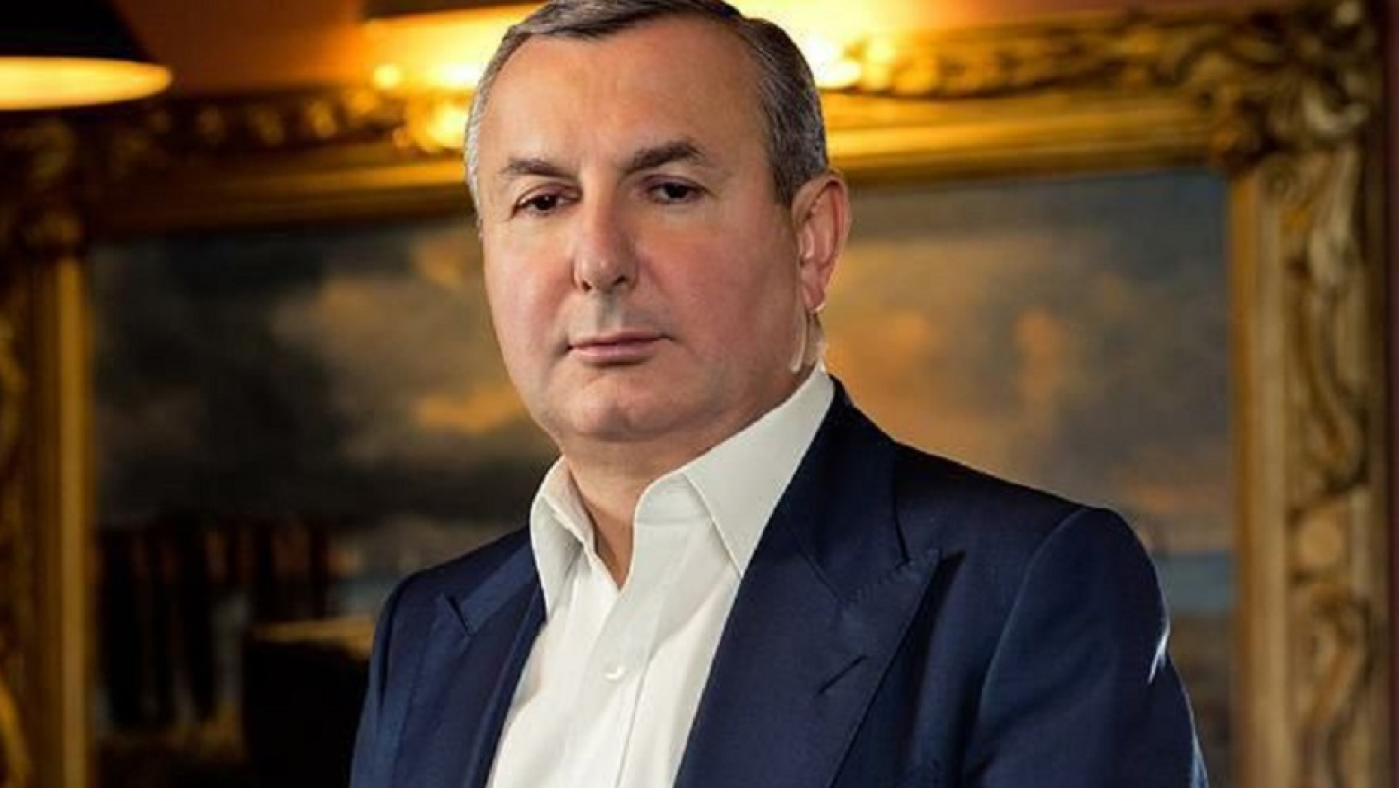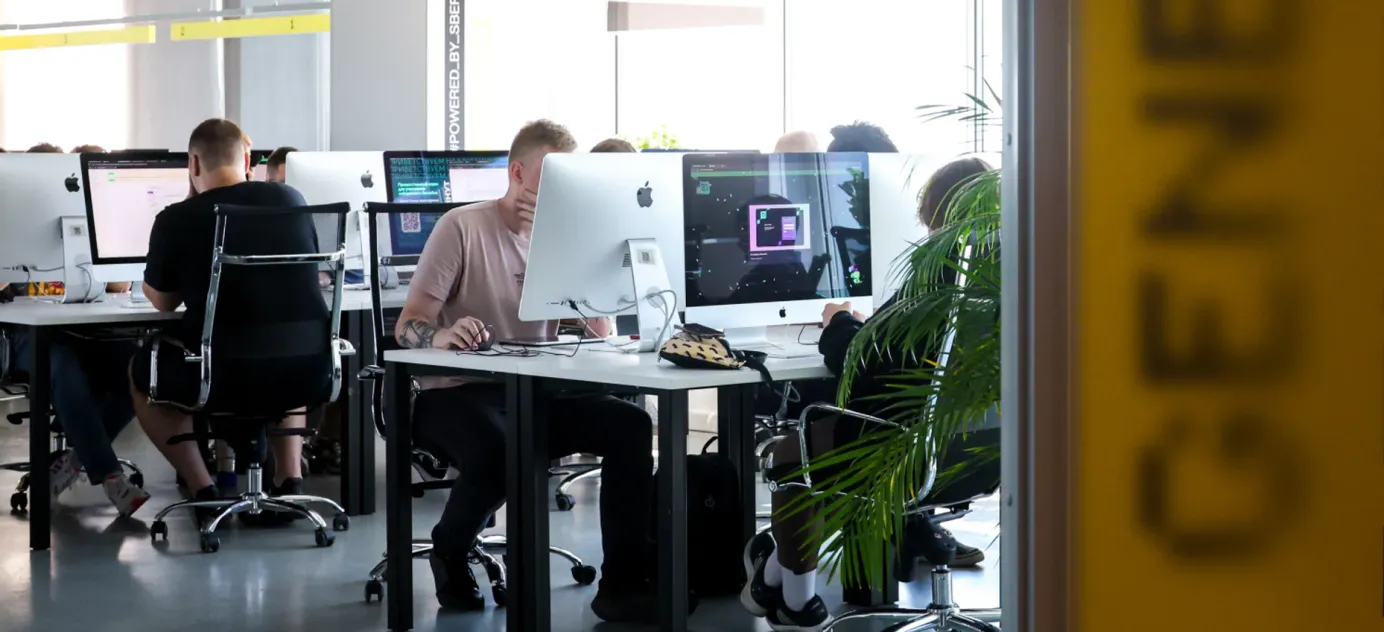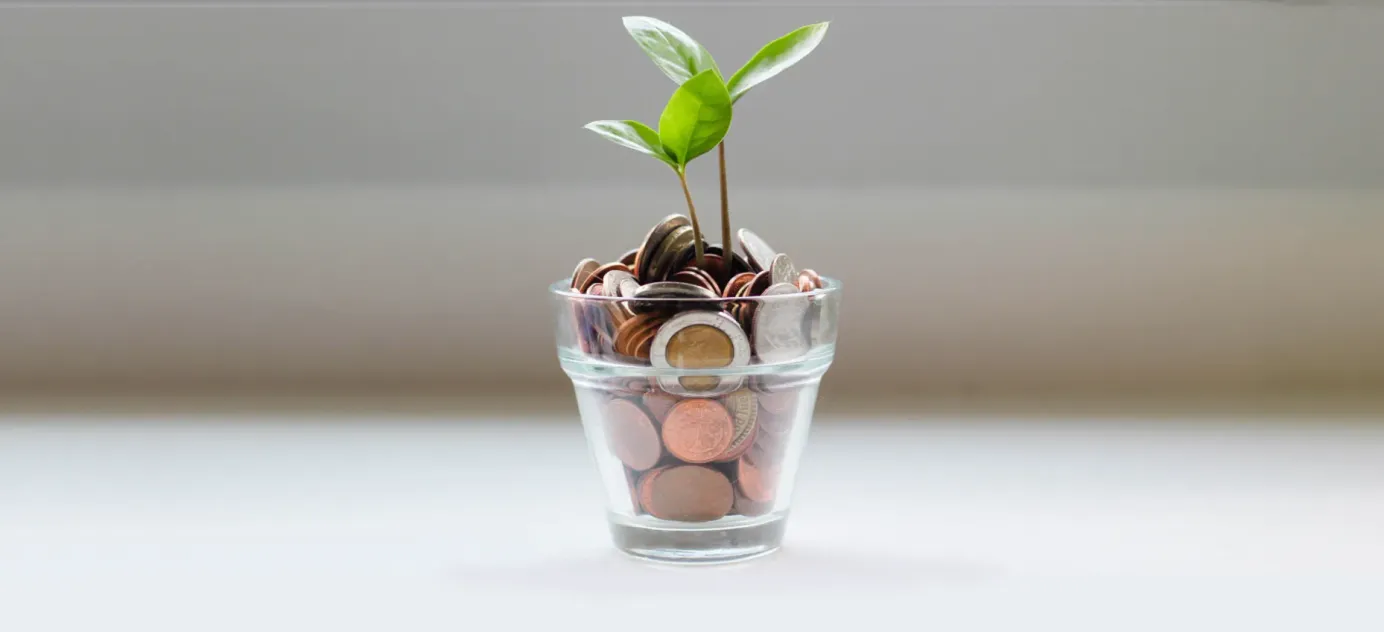
Alexander Varshavsky: The car salesman who became the biggest winner of Russia’s corporate exodus
The mass departure of international firms from Russia has provided a golden opportunity for previously mid-ranking Russian business owners to jump into the ranks of the corporate elite.
Nobody has taken better advantage of the once-in-a-generation chance to snap up profitable companies at massive discounts than Alexander Varshavsky and Kamo Avagumyan.
Before Russia invaded Ukraine the pair were the owners of Avilon, a successful, but not dominant, car dealership with lucrative government contracts. Now, through an Avilon-linked firm, they control the former Russian assets of Volkswagen and Hyundai — operations that produced one in every three cars made in Russia before the war and turned over hundreds of millions of dollars in annual profit.
Based on interviews with several of Varshavsky’s associates, business partners and competitors, as well as business records and open source data, The Bell's Irina Pankratova traces how Varshavsky made sure he was in the right place at the right time, with the connections and resources to pounce once the fire-sale of foreign assets began.
1990s Moscow
Alexander Varshavsky, a naturalized US citizen, first arrived on the Moscow scene in the mid-1990s. A resident of New Jersey with Soviet ancestry, he answered a call by the then Moscow mayor, Yury Luzhkov, to bring US-style taxi companies to the Russian capital.
Supported by the mayor’s office and able to skip through red tape, the firm he invested in — backed by Odesa-born taxi magnate Simon Garber — grew rapidly. The timing was off, however, as the 1998 Russian financial crisis put an end to the fledgling business when Russians turned to cheaper unlicensed cabs and the main investors lost interest.
Nevertheless, Varshavsky had got a taste for business in his ancestral homeland. “You will never make this kind of money in the West,” he was reportedly told by one of his partners at the time.
And it was in cars where he saw his next opportunity.
He had already started a side business importing Ford autos into Russia — New York Motors — that would become the foundations of his future empire.
New York Motors was 100% owned by a US-registered holding company, New York Motors Corporation. According to their accounts, examined by The Bell, Varshavsky and partner Igor Bakunenko owned 50% of the business until at least 2004.
When Ford opened its own plant in Russia in 2002, Varshavsky’s New York Motors became the official Russian dealer. That year Varshavsky also opened an official Mercedes-Benz dealership in Russia under the Avilon brand.
With contacts in the Moscow administration, Varshavsky secured rapid approvals to lease land and build showrooms in the capital — a 3,500-square-meter Ford dealership and a 7,000-meter Mercedes-Benz one. A former business partner of Varshavsky told The Bell that Vladimir Kolokoltsev, then head of the interior ministry in southeast Moscow, where the showrooms were located, helped Varshavsky “sign everything he needed.” Kolokoltsev would go on to become head of Moscow police and then Russian interior minister.
Enter Avagumyan
Avilon grew quickly through the 2000s. In 2007, a Varshavsky-controlled holding company commissioned a 21-storey business center — Avilon Plaza — to become a flagship hub for his firms. Among those who rented space in the building were Probusiness bank, a friendly lender, and S8 Capital, owned by Russia’s “lottery king” Armen Sarkisyan (who has also emerged as one of the major winners of the Western corporate exodus).
Dmitry Patrushev — the son of FSB Director Nikolai Patrushev, a close ally of President Vladimir Putin — was a regular at Avilon Plaza, a source told The Bell. Other frequent visitors included Igor Shuvalov, an aide to Putin and former deputy prime minister, as well as Prosecutor General Yury Chaika’s family and several of Putin’s bodyguards and other leading security officials.
“They used to go to lunch with Varshavsky, I used to run into them there all the time,” his former business partner told The Bell. “It was one big hangout … they all socialized with each other.”
Expanding rapidly, Varshavsky soon found himself in need of cash, the ex-associate said. It was at this point that Kamo Avagumyan came onto the scene.

There is little trace of Avagumyan in Avilon’s official business records, but he and Varshavsky each own half of the company through a string of offshore businesses.
On paper he appears to own just 4.59% of European Reality Company, the firm that owns Avilon’s real estate. But offshore accounts reveal he controls 50% of Maxbond Ltd, a Cypriot offshore company that owns 99% of Avilon AG, the parent company of Avilon. Varshavsky owns the other 50%. Avagumyan also owns 50% of Avilon Holdings Ltd, another Cypriot offshore company that owns Avilon Plaza Ltd, the company behind the Moscow headquarters. The other half is owned by American Prime International Group, which Varshavsky controls.
Avagumyan’s CV until the early 2000s is largely empty. He was born in Baku in 1961 and in 2001 defended a PhD thesis at the Moscow University of the Ministry of Internal Affairs. A tax record leak from 1999 shows he was at the time an employee of a company that tested military equipment.
The only official position he has confirmed holding is as a senior assistant to the Armenian Prosecutor General and its official representative in Russia. That role gave him ample access to the Russian Prosecutor General’s Office, headed by Yury Chaika, that would become a key connection for Avilon.
Avagumyan has been named as co-investor in a luxury hotel with Artem Chaika, the son of Yury Chaika. And Avagumyan own’s son, Georgi, worked in Chaika’s Prosecutor General’s Office for at least a decade, rising to the head of a department before leaving shortly after Chaika himself was removed in 2020.
Wheels for the security services
It was Avagumyan who introduced Varshavsky to high-level contacts in Russian law enforcement, a source told The Bell. Those connections would prove extremely lucrative, helping the company become a major supplier of foreign-made cars to the Russian special services.
Avilon businesses received more than 10 billion rubles ($108 million) in state contracts between 2018-2023, according to the government’s official procurement portal. They supplied the presidential administration, Prosecutor General’s Office, foreign ministry, finance ministry and National Guard, among others agencies. Given that some departments, like the FSB, are exempt from disclosure rules, these figures represent the absolute minimum.
Avilon and Solt, its fleet management subsidiary, stopped publishing accounts in 2022, in line with a government waiver introduced amid the war and sanctions. In 2021, they had reported combined revenue of 131.5 billion rubles ($1.4 billion) and profit of 7.2 billion rubles ($77 million).
By 2012, Avilon also had BMW and Volkswagen dealerships, as well as a Hyundai center and Rolls-Royce showroom. Varshavsky had also appointed a new CEO, Andrey Pavlovich, as the face of the company. But he did not step aside. “Varshavsky really runs the business … it’s just that he likes to do business through people,” a source at one of Varshavsky’s competitors told The Bell.
Pavlovich had made his break with another foreign car importer founded in the 1990s, Panavto. After a run-in with customs authorities in the early 2000s he had to hand over his stake in the firm to his brother and moved to become Avilon CEO. He headed the company until 2022, when he was trusted to get involved in the takeover of Volkswagen and Hyundai.
Branching out
While the car dealerships were going from strength to strength, Varshavsky and Avagumyan branched out, putting their and their influential associates’ cash to work in the world of investments.
That ran into major trouble when the central bank said a lender that Varshavsky had major ties with — Probusinessbank — had a 70-billion rouble hole ($1 billion at the time) in its balance sheet and revoked its license in 2015.
Varshavsky had handed around $75 million of his and his associates’ cash to the bank in exchange for promissory notes. The cash allegedly included investments by the daughters of Russia’s deputy prosecutor general and other funds connected to other high-ranking officials. With that money essentially frozen, Varshavsky became nervous, according to Sergei Leontiev, Probusinessbank co-founder.
In court documents (Leontiev sued Varshavsky in a New York court), Leontiev alleged Varshavsky had personally threatened him to try to secure the funds.
“I can’t fly back to Moscow like this. They will rip my head off,” Varshavsky told Leontiev at a meeting in London, according to a recording of the conversation submitted to court by Leontiev. “I don’t know what will happen, I don’t even want to think about it,” he said. Several others were also at the meeting — including a senior official from the Prosecutor General’s Office, representing the Chaika family, one participant told The Bell.
Varshavsky has denied having high-ranking government contacts and told OCCRP he has “no ties to the Prosecutor’s Office and never threatens anyone.”
Arrested in America
As Avilon’s business grew, so did the complexity of its corporate structure and accounting.
Some revenues began to be funneled through the Cypriot-based offshore companies and then paid out as dividends, as shown by Avilon Holdings’ financial records for 2012-2022, seen by The Bell. In 2012, for instance, the company paid out 5 million euros as dividends. The recipients were often Avilon-friendly officials and their families, Varshavsky’s former business partner told The Bell.
The increased offshore activity, both of Avilon and Varshavsky personally, caught the attention of US regulators. In 2014, Varshavsky was arrested at Teterboro Airport in New Jersey, charged with failing to report foreign bank accounts.
The case was eventually dismissed in March 2015 as “no longer in the interests of the United States,” but it triggered a major shift in Varshavsky’s mindset. He had previously often talked about selling-up and leaving Russia, his former business partner told The Bell. The arrest changed everything. He “realized that he was not welcome in the US.” He started traveling to America less frequently and began applying for Russian citizenship (he had previously lived in Russia on a work visa, according to a leaked foreign ministry database).
His wife and daughters still live in New Jersey and have no plans to leave, two of Varshavsky’s associates said.
Wartime dealmaking
It was also around this time that Varshavsky got involved in trying to capitalize on Russia’s geopolitical stand-offs. In the wake of Russian sanctions on Western food imports, he tried to build an agricultural empire using government connections, subsidies and cheap loans.
“If a business or the market as a whole is in trouble, it’s his duty to show up there,” one of his acquaintances told The Bell. “He knows how to take advantage of opportunities.”
It didn’t pan out and Varshavsky wound down his stakes. But he had shown he was ready to move quickly and allocate resources when opportunities came up — an approach he would go all-in on after Russia invaded Ukraine.
Days after Russia sent troops into Ukraine, German carmaker Volkswagen joined the hordes of Western companies announcing they were quitting the Russian market.
It took them more than a year to complete the sale — a 125 million euro deal to an Avilon-linked business. The assets were valued at 1.5 billion euros before the war.
Art Finance — a company 100% owned by former Avilon CEO Andrey Pavlovich — was the official buyer. VW said Art Finance was “supported by the Russian Dealer Avilon.” Its Russian business was subsequently renamed “AGR Automotive Group.”
Avilon has denied the connection.
“Avilon AG is not related to and is not a part of the structure of AGR, just as AGR is not part of the structure of Avilon AG,” Avilon’s press office told The Bell.
Before the war, Volkswagen accounted for over 10% of the Russian car market — selling more than 175,000 cars under the VW and Skoda brands. It had revenues of 210 billion rubles ($2.3 billion) and profit of 40 billion rubles ($430 million).
In December 2023, Art Finance followed up the VW deal by buying Hyundai’s assets — principally its St. Petersburg plant — for the symbolic value of 10,000 rubles ($110), according to South Korean media.
Hyundai had an even bigger slice of the market before the invasion, selling some 370,000 cars — Hyundai and Kia brands — a year, or 22% of all auto sales in Russia. Revenue was 206 billion rubles ($2.2 billion) with net profit of 11 billion rubles ($120 million). The business was valued at 122 billion rubles ($1.3 billion).
Varshavsky saw the opportunity as too good to turn down, according to a market participant familiar with the businessmen. “‘100 million euros for Volkswagen and even less for Hyundai? Let’s take it,” he quoted Varshavsky as saying.
Two of Varshavsky’s associates described his business strategy as: “buy cheap, and then we’ll figure it out.”
Restarting production and making the factories profitable again is a different task. As the plants used to assemble cars from overseas parts, the new owner will have to build an entirely new supply chain.
“There is no way they can be manufacturers … the plants can only be leased out,” one source in the auto market told The Bell.
In June 2023, Russian Trade and Industry Minister Denis Manturov said a “well-known Chinese carmaker” would be found as a “technological partner” to help restart production at VW’s old factory, which he said could be done in 2023. That deadline has now shifted to the first half of 2024.
The deal for Hyundai included parts for several thousands cars that had been abandoned in the factory, waiting to be assembled. AGR Automotive Group said this year it was ready to start production of several models — Hyundai and Kia cars under new brand names.
What happens when the parts run out is an open question.
One source in the auto market said negotiations with possible Chinese partners were not going smoothly. They had approached potential partners with a message along the lines of: “You pay us for the whole plant up front, so that we recoup our investment, and then we’ll talk about joint production.”
Publicly at least, no Chinese company has appeared interested so far. And the long-term fate of some of the most productive auto factories in Russia remains unclear.
Irina Pankratova
This is an abridged translated version of an investigation originally published in Russian.





